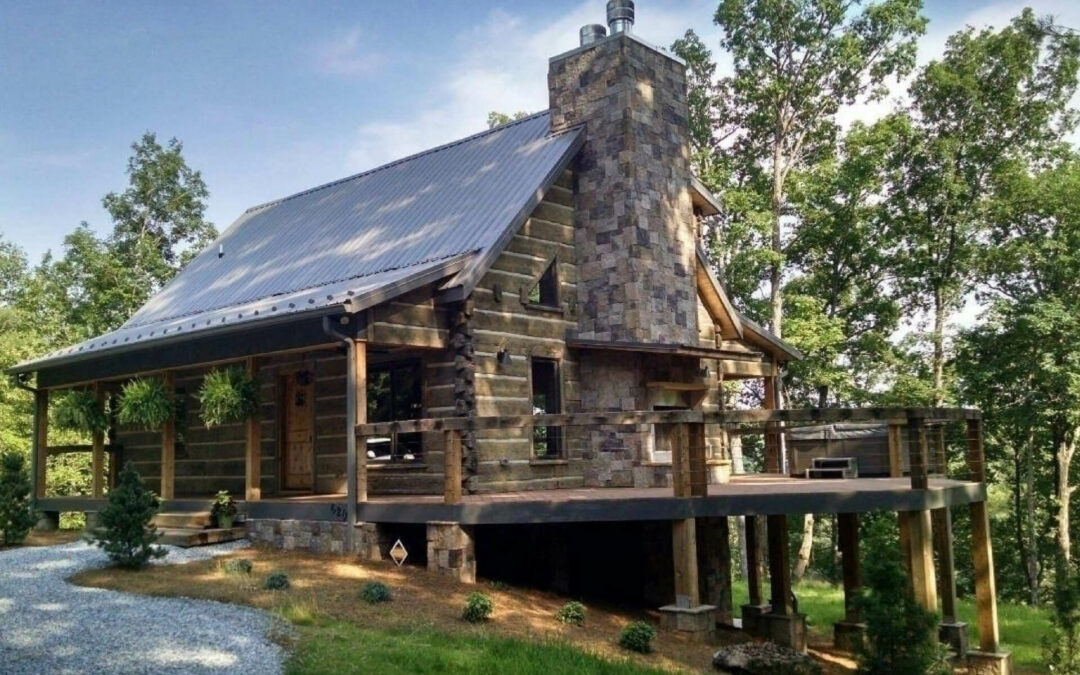Log cabins have a timeless appeal, exuding a rustic charm that is hard to resist. Whether you are planning to build a weekend getaway or a permanent residence, understanding the importance of choosing the right building materials is crucial. In Fayetteville, there is an abundance of options when it comes to log cabin construction. Let’s delve deeper into the basics of log cabin construction and explore the different types of wood used in Fayetteville’s best log cabin building materials.
Understanding the Basics of Log Cabin Construction
Building a log cabin requires a solid foundation of knowledge. Before diving into the world of log cabin construction materials, it is essential to grasp the key elements involved. From the choice of wood to the structural design, each element plays a vital role in creating a durable and stunning log cabin.
Delving deeper into the world of log cabin construction unveils a rich tapestry of techniques and traditions that have been passed down through generations. The art of crafting a log cabin involves not just assembling wooden logs but also understanding the natural characteristics of the materials used. Each log has its own unique grain pattern and strength, which must be considered during the construction process to ensure structural integrity.
The Importance of Choosing the Right Materials
Selecting the appropriate materials for a log cabin is crucial for long-term durability and aesthetics. The right materials will ensure that your log cabin stands the test of time, withstanding harsh weather conditions and maintaining its natural beauty. Investing in high-quality building materials from the start will save you from future headaches and costly repairs.
Exploring the world of log cabin materials reveals a plethora of options, from traditional cedar and pine to more exotic choices like cypress or spruce. Each type of wood brings its own unique characteristics to the table, such as natural resistance to insects or exceptional thermal properties. Understanding the properties of different wood species can help you make an informed decision that aligns with your vision for the log cabin.
Key Elements in Log Cabin Building
When embarking on a log cabin construction project, there are several key elements to consider. The foundation, walls, roof, insulation, and finishing touches all contribute to the overall quality and appeal of the log cabin. Each element should be carefully selected and integrated to create a harmonious and structurally sound log cabin.
Delving into the intricacies of log cabin building techniques sheds light on the importance of proper insulation and ventilation. Ensuring that your log cabin is well-insulated not only helps regulate temperature and energy efficiency but also protects the structure from moisture and mold. Proper ventilation, through techniques like ridge vents or gable vents, can further enhance the longevity of your log cabin by promoting air circulation and preventing condensation buildup.
Types of Wood Used in Log Cabin Construction
The choice of wood used in log cabin construction significantly impacts the cabin’s durability, appearance, and longevity. Different types of wood have their own unique characteristics and advantages. Let’s explore some common wood types used in log cabin construction in Fayetteville.
Pros and Cons of Different Wood Types
Each wood type has its own set of advantages and disadvantages. Pine, for example, is a popular choice due to its affordability and availability. However, it is prone to warping and may require additional maintenance. On the other hand, cedar is highly resistant to insect damage and decay, making it an excellent choice for long-term durability. It is essential to carefully consider the pros and cons of each wood type before making a decision.
Local Availability of Wood Types in Fayetteville
Fayetteville and its surrounding areas boast a rich variety of wood types suitable for log cabin construction. From pine to cedar, oak to cypress, there is no shortage of options. Local availability is a crucial aspect to consider, as it affects cost, transportation, and environmental sustainability. By opting for locally available wood types, you support the local economy and reduce the carbon footprint of your log cabin construction.
Evaluating the Quality of Building Materials
When it comes to log cabin building materials, quality should always be a top priority. Understanding how to assess the quality of the wood and other materials used in construction is essential to ensure the longevity and structural integrity of your log cabin.
Signs of High-Quality Wood
High-quality wood can be identified by various factors, including its moisture content, appearance, and dimensional stability. It should be properly dried to prevent future issues such as warping or cracking. Smooth and straight grains are favorable, indicating strength and durability. Avoid wood with excessive knots or signs of decay.
Factors Affecting Wood Durability
Several factors can affect the durability of wood in log cabin construction. Exposure to moisture, temperature variations, and insect or fungal infestations are common concerns. Utilizing appropriate treatments, such as pressure treatment or natural oils, can significantly enhance the wood’s resistance to these factors and extend its lifespan.
Essential Materials for Log Cabin Building
Building a log cabin involves more than just selecting the right wood. Insulation materials, roofing materials, and other essential components are equally vital for creating a comfortable and weather-resistant log cabin.
Insulation Materials for Log Cabins
Insulation plays a pivotal role in maintaining a comfortable temperature inside the log cabin while minimizing energy consumption. Various insulation materials, such as fiberglass, cellulose, or foam, can be used to enhance the cabin’s energy efficiency. Consider factors such as R-values and moisture resistance when choosing insulation materials.
Roofing Materials for Log Cabins
The choice of roofing materials can significantly impact your log cabin’s appearance and longevity. While cedar shingles offer a traditional and elegant look, metal roofs provide excellent durability and weather resistance. Consider the climate, maintenance requirements, and aesthetic preferences when selecting the roofing materials.
Cost Analysis of Log Cabin Building Materials
Building a log cabin involves careful budgeting to ensure that all essential materials are accounted for without compromising quality. By analyzing the costs of log cabin building materials, you can make informed decisions throughout the construction process.
Budgeting for Your Log Cabin Construction
Creating a detailed budget is essential to avoid unexpected expenses and financial strain during log cabin construction. Consider the costs of materials, labor, permits, and any additional expenses that may arise. Allocating the budget wisely will allow you to prioritize materials without sacrificing quality or going over budget.
Saving Costs without Compromising Quality
While quality should never be compromised, there are ways to save costs during log cabin construction. Researching and comparing prices from different suppliers, maximizing local resources, and optimizing the use of materials can help reduce expenses. However, always ensure that cost-saving measures do not compromise the structural integrity or longevity of your log cabin.
In conclusion, building a log cabin in Fayetteville requires meticulous consideration of the available materials. By understanding the basics of log cabin construction, exploring the types of wood used in Fayetteville, evaluating the quality of building materials, selecting essential components, and conducting a cost analysis, you can make informed decisions for your log cabin construction project. Choose the best log cabin building materials that align with your budget, preferences, and long-term goals, and embark on the journey of creating a beautiful and enduring log cabin retreat.
Discover the Smart Alternative with Smart Logs Of The Carolinas
Ready to build a log cabin that combines traditional charm with modern innovation? Smart Logs of the Carolinas offers concrete logs that not only replicate the authentic look of hand-hewn wood but also provide a multitude of benefits. Our logs are environmentally friendly, fire, insect, and rot resistant, and require low maintenance, making them a smart choice for both new constructions and existing structures. With competitive pricing, energy efficiency, and savings on insurance costs, Smart Logs of the Carolinas ensures your log cabin is cost-effective and durable. Don’t settle for less; choose the superior alternative for your Fayetteville log cabin. Contact Us! today to start building your dream home with Smart Logs of the Carolinas.

